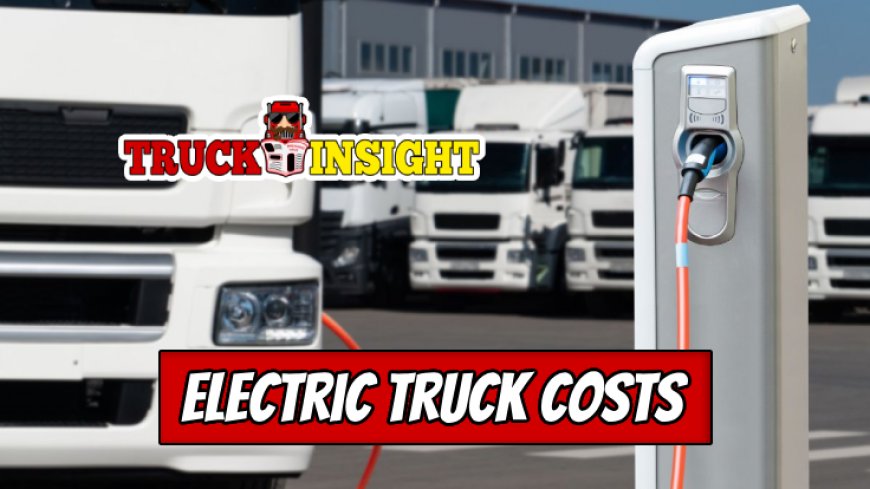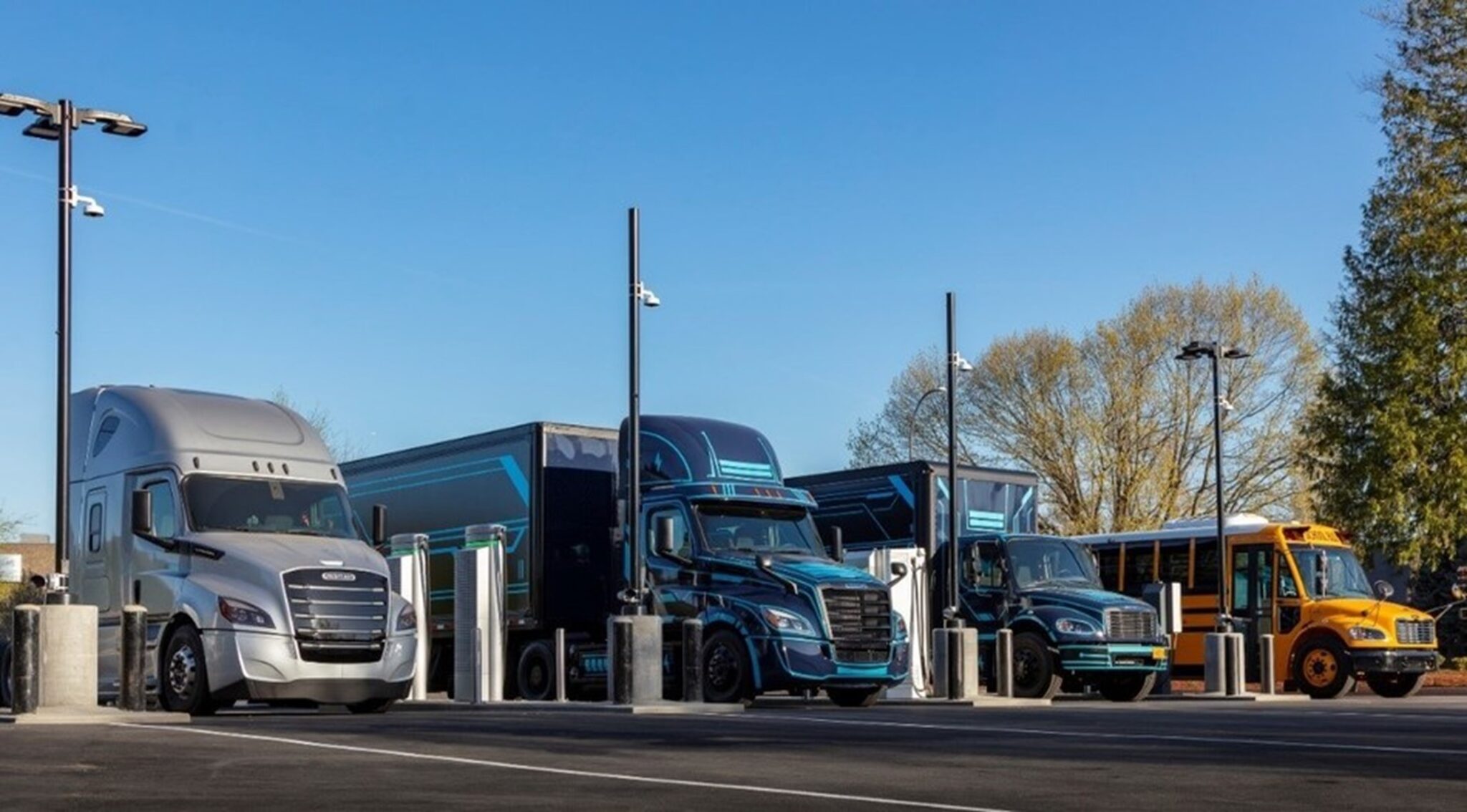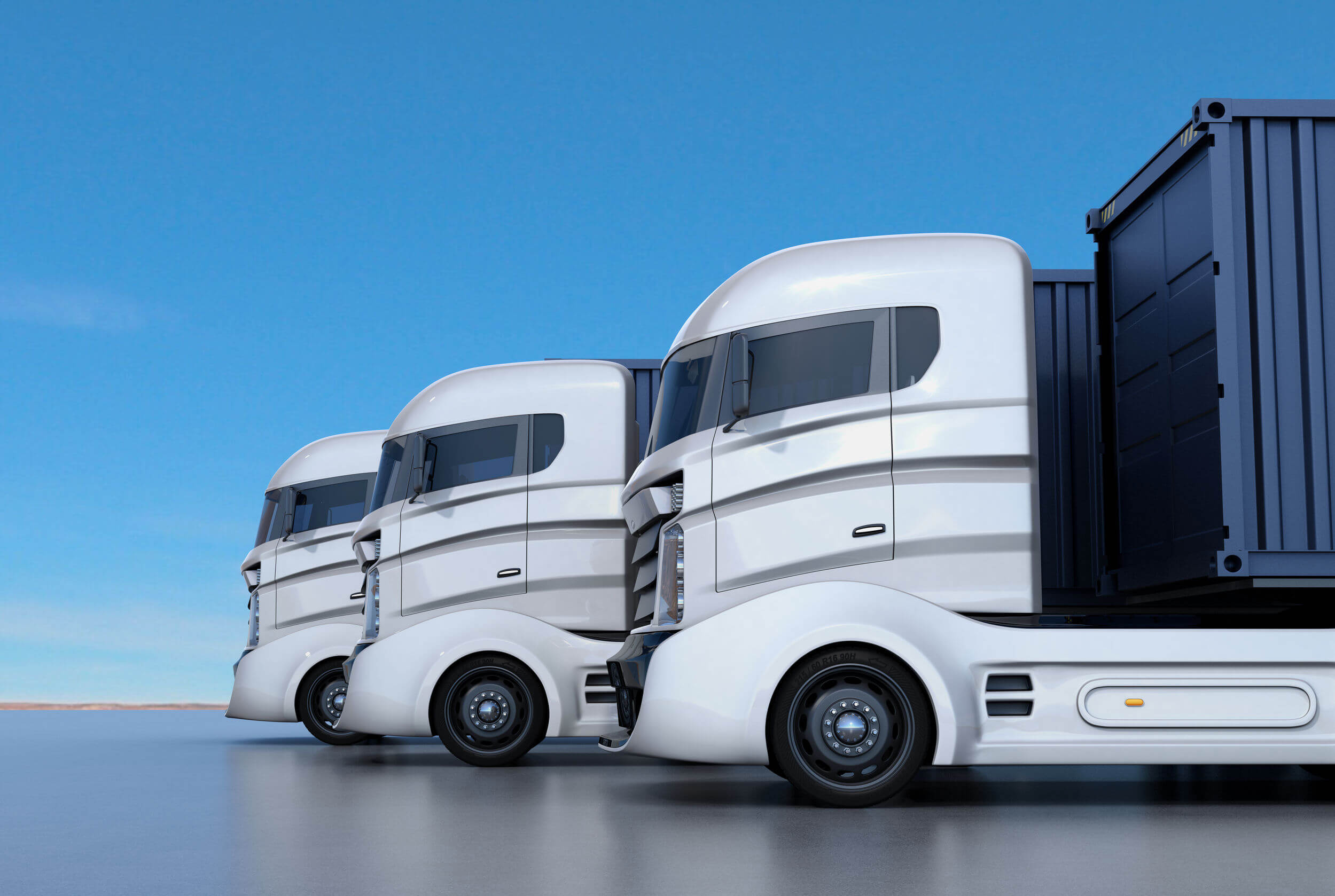Understanding the Total Cost of Owning an Electric Truck
An in-depth look into the long-term costs of owning an electric truck, analyzing everything from purchase price to operating costs.

Identifying the total cost of electric truck ownership is no easy task. It necessitates going beyond the mere purchase price and delving into the realm of long-term operating expenses. This article aims to break down these costs piece by piece, providing trucking professionals and enthusiasts with a comprehensive understanding of what to expect when considering an electric vehicle for their fleet.
Paving the Road to Understanding the Total Cost of Electric Truck Ownership
Electric trucks, although seemingly pricey, can flip the trucking economics upside down. Their lower operating costs coupled with various incentives available can make them an economically viable alternative in the long run. Let's set off on our journey towards acknowledging the true ownership costs of these modern marvels.
Table of Contents
- Exploring the Purchase Cost of Electric Trucks
- Maintenance Costs: The Electric Advantage
- Under the Hood: Electricity Costs for Electric Trucks
- Charging Infrastructure: A Crucial Element in Total Cost
- Potential Savings through Incentives and Vanishing Emissions
- Future Trends and the Total Cost of Electric Truck Ownership
- Summarizing the Total Cost of Electric Truck Ownership
Exploring the Purchase Cost of Electric Trucks

The initial purchase cost represents a significant portion of the total cost of electric truck ownership. Currently, electric trucks carry a hefty price tag compared to their diesel counterparts, often costing two to three times more. This difference, largely due to the high cost of batteries, can make the prospect of acquiring an electric truck seem intimidating at first glance.
However, it is necessary to keep in mind that the sticker price does not reflect the entire picture when it comes to the cost of ownership. Electric trucks can potentially yield remarkable savings over time – a fact that more and more fleet operators are beginning to recognize despite the steep upfront cost.
Maintenance Costs: The Electric Advantage
Once past the hurdle of the purchase price, the total cost of electric truck ownership begins to shine through the fog of sticker shock. Electric trucks are mechanically simpler machines, boasting fewer moving parts, no exhaust systems, no oil changes, and less frequent brake service due to regenerative braking systems. This simplicity translates into decreased maintenance requirements and hence, lower maintenance costs.
- Oil changes and Filters: Electric trucks do not require oil to lubricate an internal combustion engine, eliminating the need for regular oil changes and oil filter replacements. This can save fleet owners thousands of dollars annually.
- Brake Wear: Regenerative braking technology captures energy during braking and feeds it back into the battery. This results in decreased brake wear, lowering the frequency of brake replacements.
- Exhaust Systems: Electric trucks don't have exhaust systems, thus eliminating the potential costs associated with repairing or replacing components like mufflers and catalytic converters.
Cost of Downtime
Besides the measurable expenses, there's also the cost of downtime to consider. The "hidden" cost of downtime is an important factor often overlooked in the total cost of truck ownership. Fewer engine parts mean fewer things can go wrong, which can significantly reduce downtime and increase truck utilization—boosting the bottom line in the process.
Under the Hood: Electricity Costs for Electric Trucks

Another integral part of the total cost of electric truck ownership is the cost of electricity. Unsurprisingly, electric trucks consume more electricity than traditional diesel trucks consume diesel. However, when accounting for fuel efficiency and the cost per kilowatt-hour (kWh), the total electricity cost operates favorably compared to diesel fuel.
Electricity prices vary based on location, time, and the type of charging station used. Generally, though, the cost of driving an electric truck per mile is significantly less than a diesel truck. This can equate to huge savings over the lifetime of the truck, thereby offsetting the initially higher purchase price.
Charging Infrastructure: A Crucial Element in Total Cost

The cost of installing and maintaining a charging infrastructure is one of the major concerns when considering electric trucks. This cost includes not just the chargers themselves, but also any necessary electrical upgrades and ongoing maintenance. Nonetheless, for businesses with predictable routes that allow for overnight charging at the depot, the cost may be easier to digest. Amortizing the cost of infrastructure over several years and multiple vehicles will make this one-time expense more manageable in the long run.
It's worth noting that public charging stations are continually expanding, and incentives to assist with the cost of installing charging infrastructure are becoming increasingly available. This makes the transition to electric more feasible for even small and midsize fleets.
Potential Savings through Incentives and Vanishing Emissions
The journey towards electric truck ownership offers several opportunities for savings that might not be immediately apparent. For starters, electric trucks emit zero tailpipe emissions, which renders them exempt from emissions-related taxes and fees. This not only results in direct cost savings for a business but also promotes a cleaner, healthier environment—a perk that cannot be overstated.
Furthermore, local, state, and federal incentives play a substantial role in offsetting the higher upfront costs of electric trucks. These incentives can come in the form of tax rebates, grants, or even subsidies on electricity rates. It's worth noting that these incentives vary greatly from place to place, so it's essential to thoroughly research relevant incentives available in your area.
A Case for Cleaner Air and Quieter Streets
Apart from financial savings, the benefits of owning an electric truck extend to the broader community. With zero exhaust emissions, electric trucks contribute significantly to cleaner air, hence improving public health. Not only that, electric trucks operate much quieter than their diesel-powered counterparts, contributing to noise pollution reduction—another community-centered benefit!
Future Trends and the Total Cost of Electric Truck Ownership

From advancements in battery technology to the shift towards sustainable transportation, the momentum for the electric truck revolution is growing stronger day by day. As more companies start adopting electric fleets, economies of scale will inevitably drive down the purchase price and cost per kilowatt-hour (kWh) of electricity, further improving the total cost of ownership equation.
- Battery Costs: Many experts foresee a continuous decrease in battery prices, which will progressively reduce the upfront cost of electric trucks.
- Efficiency Improvements: Technological advancements will continue to boost the range and efficiency of electric trucks, thus further mitigating operating costs.
- Infrastructure Expansion: The ongoing expansion of charging networks will ease concerns about range and infrastructure costs, on top of providing increased convenience for electric truck owners.
In essence, the future of electric trucks holds promising prospects for fleet owners considering a switch from conventional diesel trucks.
Summarizing the Total Cost of Electric Truck Ownership
The decision to switch your fleet to electric trucks is a significant one, with many variables to consider. The total cost of electric truck ownership does not merely boil down to a simple comparison of sticker prices; rather, it involves factoring in the lower operating costs, diminished maintenance expenses, potential tax incentives, and the societal benefits of less noise and cleaner air. There's also the promise of future trend lines pointing towards lower costs and expanded infrastructure.
In conclusion, there is no one-size-fits-all answer when it comes to the cost of owning an electric truck. But by considering all these aspects, you can certainly navigate towards an informed decision that embraces the future, respects the environment, and paves the road for potential long-term savings.
What's Your Reaction?





























































